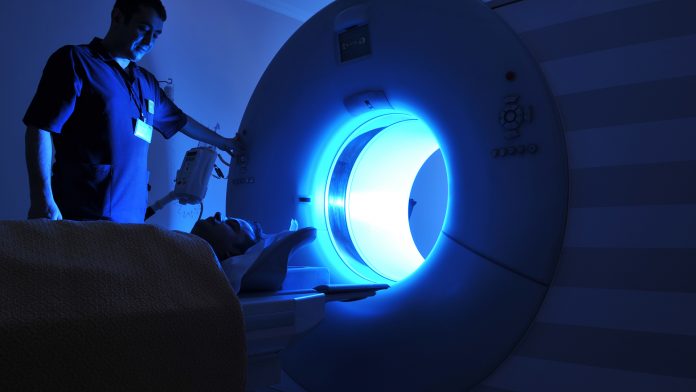A new market report suggests a surge in the market for Artificial Intelligence (AI) in medical imaging technologies, predicting that the market will reach $264.85bn by 2026.
The report by Data Bridge Market Research suggests that global market for Artificial Intelligence (AI) in medical imaging is estimated to hit $264.85bn by 2026, registering a CAGR of 36.89% between 2019 and 2026.
The report attributes the projected success to higher rates of conclusive diagnosis procedures with the application of AI in medical imaging. The use of AI in medical imaging also facilitates the rise of personalised treatment rather than a ‘one-size-fits-all’ approach.
One major factor influencing the adoption of AI in medical imaging is its proven success in diagnosing and staging cancers. The Cancer Prevention and Research Institute of Texas recently granted an independent medical technology provider, Perimeter Medical Imaging, $7.4m to develop AI technology that can identify sub-surface breast cancers.
The benefits of medical imaging in cancer staging
Sentinel lymph node biopsy is currently the standard method for breast cancer staging, which includes preoperative lymph node tracing and intraoperative lymph node biopsy image-guiding. However, existing image guidance techniques suffer from a variety of limitations, such as harmful ionising radiation, high cost, and poor imaging depth.
New tools such as computational and digital pathology, molecular diagnostics, and AI are making their way into advanced clinical diagnostics, providing some unique opportunities to incorporate these technologies into the evolving healthcare landscape. Baylor College of Medicine, USA, is conducting the study in partnership with Perimeter Medical Imaging, which is providing real-time, high-resolution images of removed tissues. The company is developing AI technology to overlay the images over areas that may contain breast cancer to help surgeons make decisions during operations.
“This could be a huge improvement for patient care. It could help patients avoid a second surgery and the physical, emotional and financial stress that accompany an additional procedure,” said Dr Alastair Thompson, professor, section chief of breast surgery and Olga Keith Wiess Chair of Surgery at Baylor College of Medicine.









